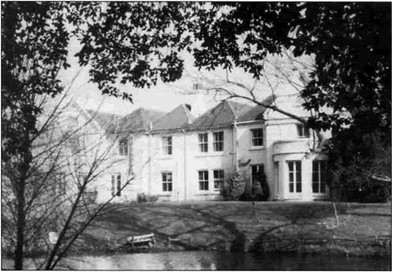Main
Menu |
| Home |
| About SEPS |
| About Dr. Lowenstein |
| Our mailings |
| Contact us |
| Links |
| Tell-a-Friend
|
| Guestbook
|
| About Southern England Psychological Services |
Consultancy Services SEPS provides
a range of specialised psychological services for schools, parents
and families, social services, employers and employees, covering
Southern England. Through personal assessment and treatment programmes formulated to suit individual needs, SEPS can help anyone in special need of consultancy to better understand and cope with their problems, be they educational, behavioural or vocational. In the School Through its Educational and Clinical Psychological Service, SEPS can make a thorough assessment of a child's needs, and quickly furnish a report on the methods most likely to be effective in dealing with individual difficulties, whether these are emotional, academic or behavioural. We can work with teachers and parents in overcoming children's learning difficulties in general, or in specific subjects such as reading, spelling or mathematics; in advising upon specific courses; and in developing vocational skills. Specialised testing for dyslexia is available. In the Legal Field At a time
when the expertise of Expert Witnesses is frequently questioned,
we are able to offer a service based on a combination of research
and publications in a variety of specific areas dealing with Forensic
Psychology. What are our areas of expertise? Children: intellectual and personality assessment, children with abuse problems, minimum and maximum brain damage, delinquent or criminal activities, psychological aspects, failure to receive education according to their special needs. Adults: with emotional and behavioural problems, serious crimes wherein there is a psychological factor explaining the behaviour, crimes committed as a result of subnormality or moral imbecility, Münchausen Syndrome, post-traumatic Stress and client accused of Rape, Homicide, Substance Abuse, Alcoholism, Dyslexia, Kleptomania, Arson, diminished responsibility, divorce, child custody and access, parental attention syndrome (PAS), mental illness, criminal responsibility, psychiatric and psychological disorders, brain injury, child sex abuse and special needs (Dyspraxia, Dyslexia, Dysorthographia) and road rage (aggression in driving). Also personality testing, aptitude testing and interest testing. Recently much work has been done on mediation and conciliation work with couples. Within business and industry, there have been requests for help in resolving personality clashes and in improving communication, participation and morale within such small or larger organisations. Some Questions and Answers What will the Psychologist do for you? A highly qualified and experienced Psychologist, who is a chartered member of the British Psychological Association and on the UK Register of Expert Witnesses, and is also on the Law Society List of Expert Witnesses, can offer the following expertise: He will provide you with a comprehensive and highly professional service based on a personal diagnostic assessment of your client. This will consist of in-depth interviews and more importantly objective and projective testing based on standardised norms. This is then followed by a written report concerning your client and responding to your brief. How will this Report help you? It will provide an objective expert opinion in response to your questions and the needs of your client, backed up by research, much of which has been published. Will the Psychologist be prepared to be an Expert Witness in court? Yes, he will. He has researched and written about many aspects of Forensic Psychology. These are available on request. They provide the kind of back-up of expertise frequently required when experts are cross-examined as to their basis for being experts. How does the Psychologist differ from a Psychiatrist? He differs in many ways. Chiefly, the psychologist does not rely on interviews and opinions based solely thereon. He has standardised tools to measure objectively and report what hè finds. His training is more specialised to diagnose and treat problems. What else is provided? Many therapists provide assessment and forensic evidence for solicitors and barristers in the courts, but this may not be sufficient. For this reason we have decided to offer a remedial or therapeutic service in addition, should this be required as a result of a case which is heard in the courts. Of particular interest has been the work involving one or more of the following problems: minimal brain dysfunction as a result of accidents or other injuries; treatment for depression or post-traumatic stress disorder; diagnosis and treatment for a variety of emotional and behavioural difficulties including a tendency towards aggression, phobias, marital problems, etc. |
www.parental-alienation.info |
